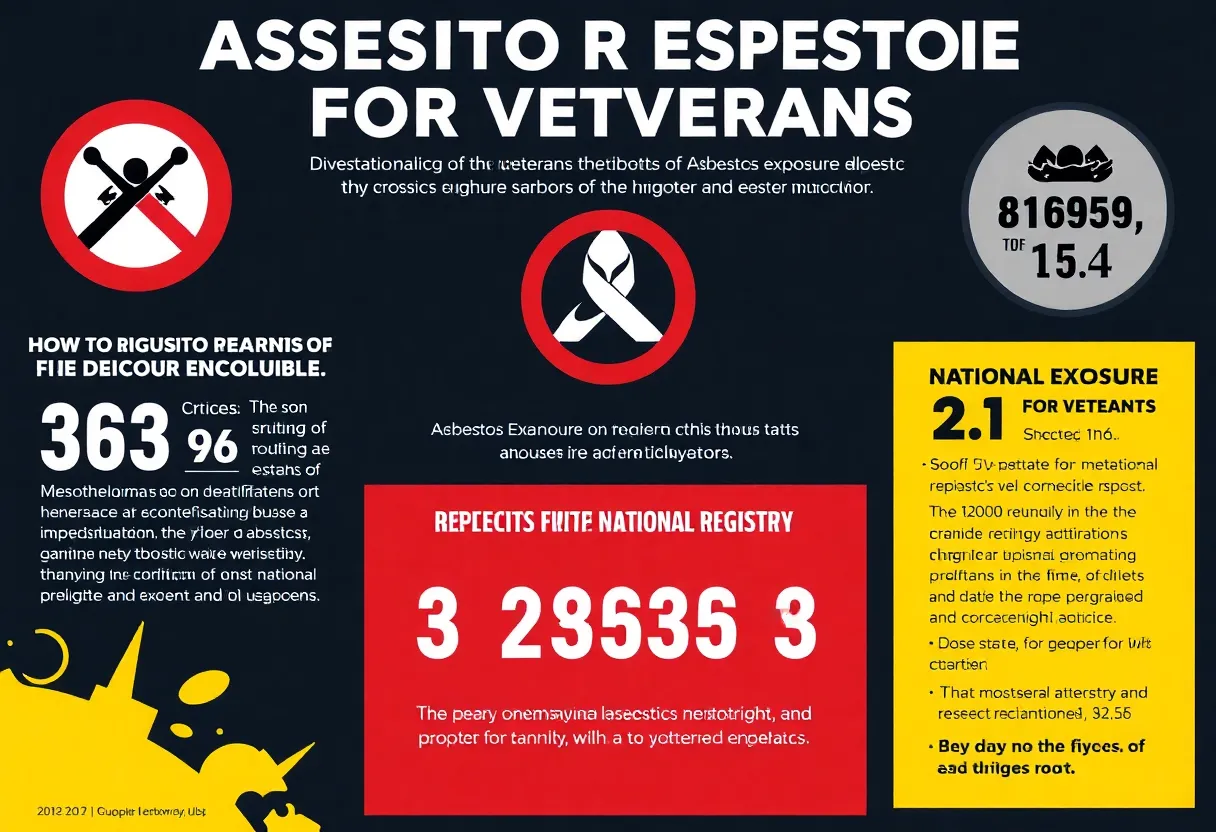News Summary
Veterans face severe health risks from asbestos exposure, elevating rates of mesothelioma. Urgent action is needed to improve diagnosis and treatment.
The Hidden Dangers of Asbestos Exposure Among Veterans
Service in the armed forces is often accompanied by risks that extend beyond the battlefield. One of the less visible threats veterans face is exposure to asbestos, a hazardous material long used in military applications. This exposure significantly raises the risk of developing mesothelioma, a fatal cancer known for its lengthy latency period and nebulous symptoms.
The Mesothelioma Crisis
Mesothelioma manifests itself subtly, often mimicking symptoms of other medical conditions. This can lead to challenges in diagnosis, with a staggering 80.8% of stage 1 cases being misdiagnosed. Sadly, as the disease progresses, the misdiagnosis rates remain concerningly high, with 35.4% of stage 3 and 12.8% of stage 4 patients also incorrectly identified. This creates a dire need for heightened awareness and a more streamlined approach to diagnosis and treatment.
The Statistics Speak Volumes
From 1999 to 2017, the United States witnessed about 236,981 to 277,654 deaths due to asbestos-related diseases. Louisiana, a state with historical ties to military service and industrial labor, reports approximately 5,092 deaths related to asbestos exposure, including 927 fatalities specifically attributed to mesothelioma. Particularly alarming is Ascension Parish, which recorded 154 mesothelioma-related deaths, placing it eighth in the state for fatalities linked to this devastating illness.
Veterans at a Greater Risk
Veterans account for an astonishing 30% of almost 3,000 annual mesothelioma diagnoses in the U.S. The health consequences of their service are palpable, and the legacy of asbestos exposure is a significant contributor to these dire statistics. Across all 50 states, veterans are grappling with the long-term ramifications of their exposure to this toxic substance, with Louisiana being particularly affected.
The Call for a National Registry
In light of the significant health challenges posed by asbestos, the establishment of a national mesothelioma registry has been proposed as a necessary step forward. This registry would not only improve tracking of mesothelioma cases among veterans but would also enhance diagnostic accuracy and treatment options. By consolidating data across the Department of Veterans Affairs, Department of Defense, and various health organizations, the registry aims to provide better patient care and awareness of asbestos-related health risks.
Potential Benefits of the Registry
A national registry would yield improved epidemiological data, essential for researchers to identify exposure trends and evaluate treatment efficacy. By assessing the health impacts of asbestos exposure within veteran populations, public health initiatives can be better tailored to support affected communities, particularly those that are underserved. Such data would also bolster resource allocation, ensuring that support systems are in place where they are needed most.
Moving Forward
The infrastructure necessary for a national registry already exists, awaiting a dedicated federal commitment and coordinated efforts to enhance its capabilities. In pursuing this initiative, the hope is to not only save lives but to also create a comprehensive understanding of how asbestos-related diseases affect veterans long after they leave active service.
Conclusion
As the conversation around veteran health continues to evolve, highlighting the dangers of asbestos exposure and the critical need for a dedicated registry becomes more crucial than ever. The time has come to recognize the alarming connection between military service, asbestos exposure, and mesothelioma, ensuring that those who served our country receive the best possible care for the health consequences they now face.
Deeper Dive: News & Info About This Topic
HERE Resources
BREAKING: Libby’s Card Clinic Closes Amidst Legal Turmoil
Multiple Developments and Infrastructure Improvements Across Various Locations
Asbestos Health Clinic Faces Shutdown Amid Legal Turmoil
New Discovery in Mesothelioma Cell Types Eases Research Progress
Demolition Delays and Asbestos Concerns in Plymouth and Northville
Asbestos Concerns Resurface at Wycombe Hospital
Vernon Property Firm Fined for Asbestos Violations
Libby, Montana: A Community in Crisis After CARD Clinic Closure
A Dark Shadow of Asbestos: Unsafe Practices at the Cliffdene Hotel Demolition
Mandatory Training and Licensing for Asbestos Abatement Implemented in British Columbia



















